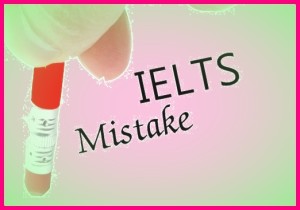9 Common IELTS Mistakes to Avoid

Are you getting worried about your IELTS exam? Then it’s not a matter of getting panicked rather we need to focus on the negligence of errors. It’s understood that mistakes are part of any exam but a student can easily overcome it if he or she keenly observes the mistakes encountered by him.
Incorporating more and more:
- Now, in IELTS exams what students mainly do is incorporate their ideas without reading out the question carefully.
- So that students keep an intent of getting high marks.
- For example if you are asked to write not more than 5 words then it means that you have to write only 5 words.
- To avoid such mistakes they should read the question carefully.
Avoiding instructions with an intent to maximise length:
- Here, students usually avoid reading instructions.
- If they read it is only in a second. It is a non-serious attitude towards studies.
- If they are asked to write an essay with a length that varies from 400-500 then they should stick to that instruction.
- They can avoid all this by reading the instructions carefully.
Wrong grammatical structure:
- One of the most common mistakes which every student makes just because they are unaware of the basics.
- In the IELTS exam, it’s completely prohibited as there’s no penalty given to the students in this matter.
- They can avoid grammatical errors by practising more.
- They can develop the habit of writing, speaking and listening so that they can come to know the flaws they made.
Longer text:
- Smart students usually think that if they maximize the length of the text they will have good marks.
- According to them, the examiner will get an appeal and their chance to get high marks will be much increased.
- But they don’t know their perception is entirely wrong.
Switching to an immaterial subject:
- A common mistake all the students usually make is to change the subject. It is strictly prohibited that irrelevant text will be marked zero but students do that.
- You should understand that it’s a matter of quality not quantity. Filling out a lot of pages or speaking on irrelevant matters will land you never.
- It can be explained in the way that if you zero figure and turn it upside down it will be the same zero with no value.
Cramming:
- Cramming is a favourite hobby of smart students.
- They think that if they will cram the text, they will get good marks. But they don’t know that their good memory can deceive them at any time.
- They mainly rely on their memory so they are no longer able to understand the text.
- Students can avoid this most common mistake by grasping the ideas on their own and also developing the habit of writing essays.
Confuse accent and pronunciation:
- In speaking tests, most students speak a lot but their words are irregular.
- It entirely shows that they are creating and building up the accent.
- Remember, in the IELTS exam pronunciation is important not the accent.
- To avoid such problems they should work on the sounds. Practice sounds are available for the exam preparation so that the problems can be demolished.
Use of connectors:
- Another mistake that most of the students make is the use of connectors.
- They are devoid of the fact that a good essay demands coherence and cohesion.
- They overuse the words which are marked wrong by the examiners. Students can easily avoid such mistakes by doing formal and relevant writing.
Use of Incorrect ideas:
- Surely an essay is made up of relevant ideas which are incorporated in any text. In the IELTS exam, students incorporate ideas without knowing the actual way of its incorporation.
- In any exam, ideas are not important but how they are described makes it worth it.
- Relevant ideas are always acknowledged by the examiners. Students can avoid all this by developing a reading habit.
Bonus Tips:
- Recognize Your Strengths and Areas for Improvement: Engage in practice examinations to evaluate your performance, pinpointing both your proficiencies and the aspects that necessitate enhancement. Concentrate on specialized practice to address identified weaknesses.
- Obtain Professional Assistance: Enroll in an IELTS preparation course or collaborate with a tutor, enabling you to receive personalized feedback and tailored strategies designed to optimize your performance.
- Learn how to manage your anxiety: Cultivate relaxation techniques conducive to maintaining composure and concentration during the examination. Techniques such as deep breathing exercises and positive self-affirmations can serve as effective tools.
Conclusion:
Students should keep themselves aware of all the pitfalls and good points of the test. The structure and practice material will help them in attaining high scores.


Thanks a lot John to get a good idea, also non-developers just like myself will be able to pull this off: )This is really necessary for a new multi-international site when it comes to SEO.
I’ve tried to work with, but it really does not performs in any way.
may be you need more hard-work. Or please enlighten us how it works then?